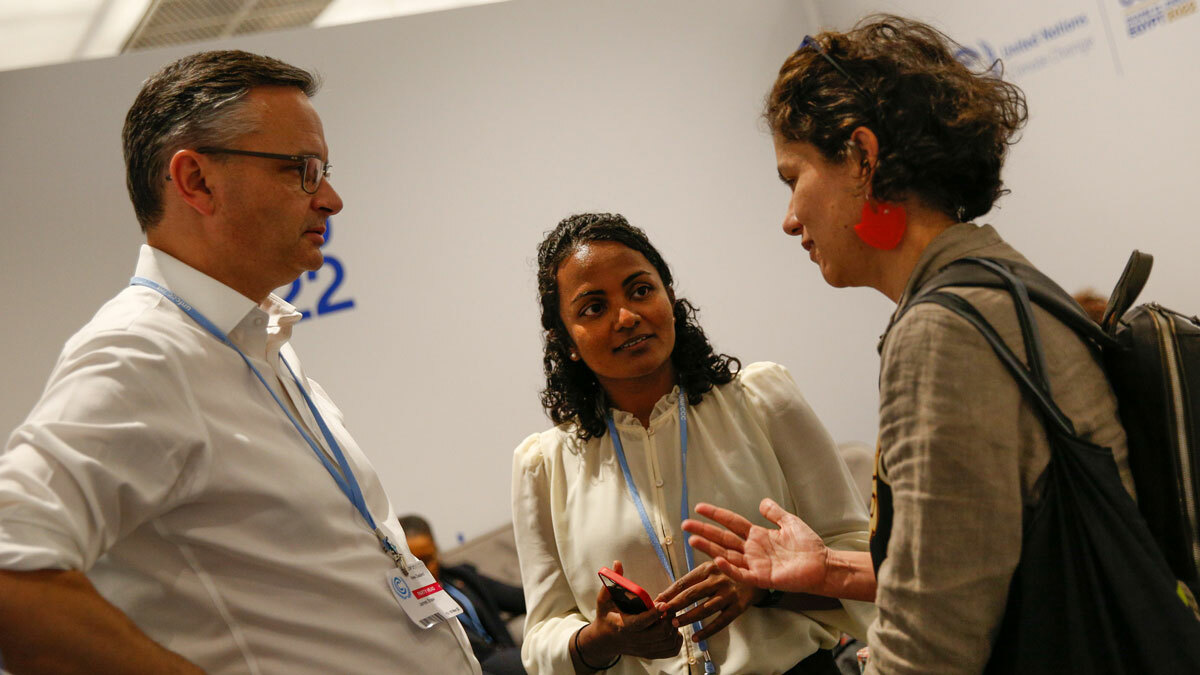For two weeks in November, 35,000 participants – including over 100 world leaders – descended on the Egyptian coastal city of Sharm el-Sheikh for the 27th Conference of the Parties to the United Nations Framework Convention on Climate Change (COP27). This annual event is the largest on the global climate change calendar, a forum for discussion, debate and – hopefully – action.
Laying out the stakes in his opening address, UN Secretary-General António Guterres pulled no punches:
“Humanity has a choice: cooperate or perish. It is either a Climate Solidarity Pact – or a Collective Suicide Pact,” the UN Secretary-General said.
So, what happened at COP27, and what action can we expect to see from the global community?
Loss and damage fund a historic moment
Tense, eleventh-hour negotiations spilled over the official closing time of the event but ultimately yielded COP27’s most resounding success – the agreement to establish a global “loss and damages” fund to help those countries most impacted by climate disasters.
“This will not be enough, but it is a much-needed political signal to rebuild broken trust.”
The backdrop of the recent catastrophic flooding in Pakistan, which has left over two million people without homes, loomed large over COP27 as a stark example of how developing countries are bearing the brunt of the climate crisis. The historic loss and damage fund will compensate the countries that are most vulnerable despite contributing little to the climate crisis themselves.
“This COP has taken an important step towards justice,” commented Secretary General Guterres. “This will not be enough, but it is a much-needed political signal to rebuild broken trust.”
Disappointment on fossil fuel commitments
The win on compensation for vulnerable nations was unfortunately balanced out by disappointing missed opportunities to fight rising temperatures.
Experts have noted that language used in the final COP27 agreement around “low emissions” energy introduces a new loophole that could justify new fossil fuel development, as gas produces less emissions than other fossil fuels like coal.
Many nations and groups in attendance have been left disappointed that the agreements do not go far enough to support phasing out fossil fuels, with New Zealand Minister for Climate Change, James Shaw, commenting to the BBC that there have been "strong attempts by the petrol states to roll back" on agreements. Indeed, the number of fossil fuel lobbyists in attendance at COP27 skyrocketed this year, with The Guardian noting a 25% rise on 2021.

“Aotearoa New Zealand is committed to bold, enduring action”
As head of the New Zealand delegation in attendance at COP27, Minister Shaw addressed the conference on 15 November to speak about the Government’s climate actions, including this year’s emissions reduction and climate adaptation announcements.
Earlier in the week, the Government committed $20 million to help address climate-related loss and damage in developing countries, signaling our support for the agreement to come at the close of the conference.
"Dedicating funding for loss and damage places Aotearoa New Zealand at the leading edge of wealthy countries who are supporting action to address loss and damage from climate change. It strongly signals our support for Pacific priorities," Foreign Minister Nanaia Mahuta said.
